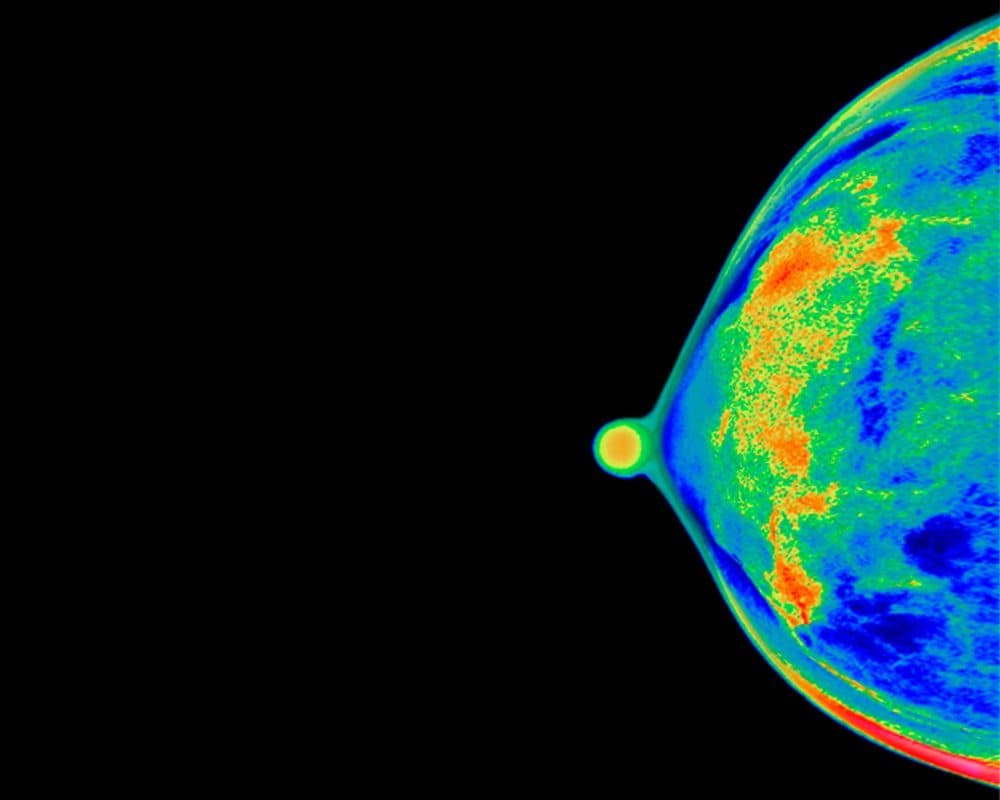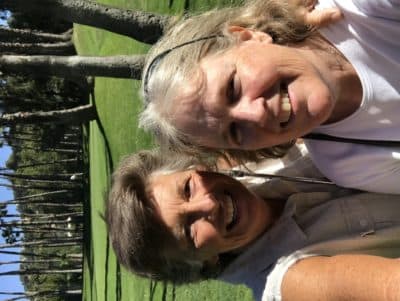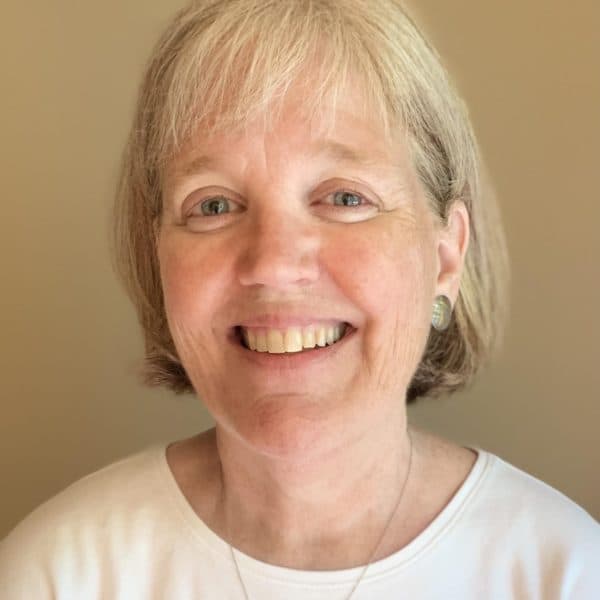Advertisement
Commentary
What to say when someone you love gets cancer

I never saw it coming. Never even thought about it. What do you do when you suddenly belong to a club no one wants to join?
Every July, for decades, I dutifully appeared for my annual mammogram. Joining a roomful of suburban ladies, I absentmindedly scrolled through my phone while waiting for my name to be called. Once summoned, I followed the appointed technician like a lemming to the sea. The drill was always the same. Slip the smock off one shoulder, then the other. Followed by the strange pas de deux now familiar to every woman north of 40.
“Drape your arm over the machine please. Can you push your bum out a bit? Yes, that’s it. HOLD your breath!”
Rinse. Lather. Repeat.
I still marvel at the barbarism of the equipment. Deciphering women’s breasts continues to confound modern medicine, as mysterious to technological advancement as to teenage boys. That said, I never much minded the old-fashioned squish technique. I had long ago made my peace with this awkward interaction. “It is what it is,” as the kids say.
Deciphering women’s breasts continues to confound modern medicine, as mysterious to technological advancement as to teenage boys.
Afterwards I would pop my pinkened flesh back into my bra and head toward the exit. Filling out a reminder card on my way out, the receptionist would smile and cheerfully say, “See you next year!” And for the next 12 months, the topic never crossed my mind.
But last month, a phone call soon followed my initial screening. A breezy voice inquired, “Can you come in for a second set of images?” Even then I didn’t worry. With no troubling family history in my rearview mirror, I arrived for my next appointment both naïve and undaunted.
Afterwards I was ushered into a side room I had never seen before, still wearing my smock. Upon entering, two other women nervously looked up from the seats on which they were perched. Held captive in this makeshift detention hall, we all waited in palpable silence.
The next word I heard sealed my fate. The radiologist entered, looked around the room and simply said, “Anne?”
Advertisement

The next three weeks were a whirlwind. An impending cross country move to Los Angeles made a challenging situation feel Sisyphean. I needed to find a surgeon, schedule a biopsy and familiarize myself with the Byzantine code of my new insurance plan, all from 3,000 miles away. A week after my arrival, I found myself in a sterile white room in Cedar Sinai Medical Center. My breast was clamped between two plastic plates, leaving a small circular opening through which a tissue sample could be removed. The mechanism for this procedure was described to me as a cross between a knitting needle and a pineapple corer. I later discovered it was a disturbingly accurate assessment.
The biopsy confirmed what the radiologist, and then surgeon, had suspected: I had cancer.
According to the latest statistics, nearly 50,000 cases of non-invasive breast cancer will be diagnosed in the United States this year. An additional 281,550 women will learn they harbor the more dangerous invasive variety. This health crisis is not restricted to those living within our own borders: in 2021, breast cancer tops the list of new cancer diagnoses worldwide, accounting for 12% of all cases.
Mine is not an unusual situation, as the data clearly demonstrates. I am also among the most fortunate of patients. Employed, insured and well connected, I have access to the very best of care. My medical profile is not complicated by other competing conditions. And perhaps most importantly, I have a broad network of family, friends and colleagues offering everything from casseroles to companionship. While my surgical recovery is ongoing and radiation treatments still loom, my particular batch of lemons appear headed to the lemonade pitcher.
But it is the very ordinariness of my condition, its pedestrian place in our medical landscape, that compels me to reflect. No matter who you are or where you live, it seems impossible to escape the grasp of this disease. With October, Breast Cancer Awareness Month, before us, a few thoughts on this other pandemic, as a newly-minted citizen of Pink Ribbon Nation.
Resist the urge to “fix” the recently diagnosed’s problem and simply occupy the same space of uncertainty and fear that they do.
First, reassurances such as “you’re so lucky they caught it early” or “I’ve heard the quality of care at XYZ hospital is amazing,” while likely true, can be experienced as diminishing. Resist the urge to “fix” the recently diagnosed’s problem and simply occupy the same space of uncertainty and fear that they do.
Second, for every patient, there is a parent, spouse, friend, child, colleague or neighbor acting as a primary caretaker. They’re scared too. Provide them with whatever support you can, including insisting they put their proverbial oxygen mask on first. The patient is depending on them. Let them know they can depend on you.
And finally, shower the nursing staff with appreciation. Those who choose oncology as a profession are surrounded by profound patient discomfort and anxiety each and every day. While your physician’s diagnostic and surgical skill is central to achieving a positive outcome, the nurses get you over the finish line. Take the time to learn their names. Pen them a note of gratitude. Make a donation in their honor. Recognize their work is literally life-giving.
For each of the 31 days of October, and for the rest of my life, I will be grateful to occupy a place in Pink Ribbon Nation. Nothing sparks an appreciation of life more than the thought of losing it.
